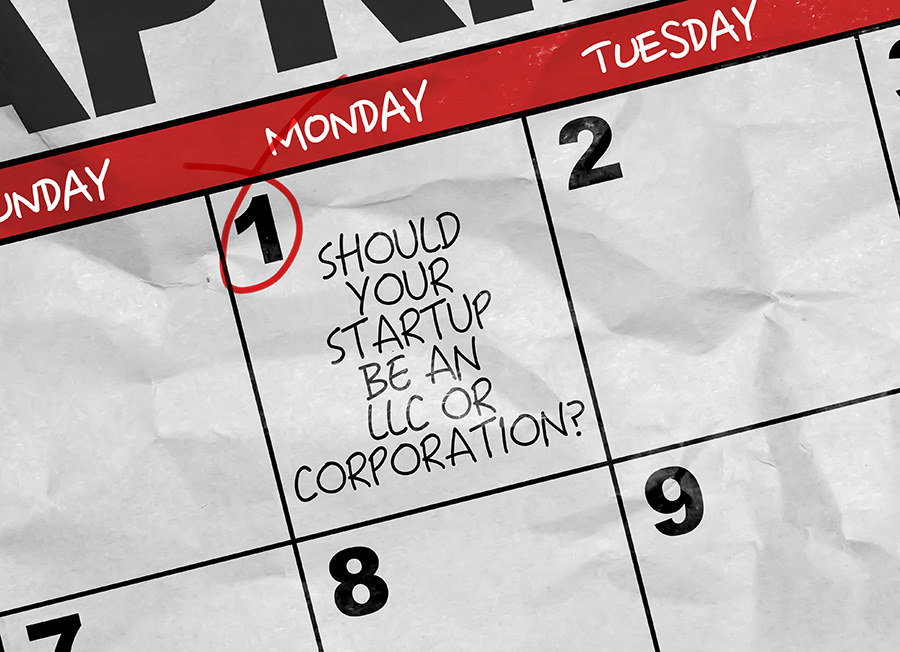
How many shares should my Corporation Have?
When you open a Corporation, part of the process will be determining the number of total shares that you would like to have. As a new business owner, this step may be something you are unsure of, or maybe something you didn’t even realize required a choice!
The number of shares that a corporation should have may depend on various factors, including the company’s capital structure, ownership distribution, and future funding needs. Ultimately, when trying to answer the question, “How many shares should my corporation have?” There is not a one-size-fits-all answer. However, we can provide you with some general information and considerations that may make it easier to find out the best answer for YOUR Corporation.
First, let’s think of the total shares like pieces of a pie, everyone can imagine their favorite pie, right? This ‘pie’ will be representing the total ownership in a company. When a company starts, it decides how many pieces (shares) the pie will have in total. These are called authorized shares.
As the company grows, it gives out some of these pieces to owners, like the founders and investors. The pieces they receive are called issued shares, showing how much of the company they own.
The company might keep some pieces in reserve, these reserved shares are called unissued shares. They can be reserved for later use, like if they need more money or want to bring in new owners at another time. Think of it like putting some leftover pie in the freezer, so you can treat yourself later, or share with a friend!
The number of pieces you decide on depends on who owns the company and if you plan to get more owners in the future. It’s a bit like planning how big your pie should be and how you want to share it with others.
Understanding how many shares you would want to start with may seem complicated, but it can be as simple as pie! For example, your business pie can feed 1000 people or a million, but remember, the size of the pie stays the same. It’s not all about how big the total pie is but it’s about how small you can make those pieces.
Now, how do pie metaphors translate to real world business? Here’s an example that will help us understand the importance of choosing a number of shares that makes sense for your business; Currently, Tesla is worth $576.62 billion USD. If Tesla had only 1,000 shares, each share of Tesla would be $573,000,000…this would make it pretty impossible for anyone to be able to afford to buy even a single share. Since Tesla actually has 3 billion shares, their current price per share is $183. Now, the value of the company does not change, but the amount each share costs is different, because the number of shares is greater.
Now, let’s break down some of the terms regarding shares that were mentioned above.
Authorized Shares: AKA total shares that the corporation holds. When a corporation is formed, the articles of incorporation specify the total number of authorized shares that the company is allowed to issue. This number can be set initially, and if needed, it may be amended later through a shareholder vote.
Issued Shares: AKA shares that are distributed from the corporation to its shareholders. The actual number of shares that have been issued to shareholders is often a fraction of the authorized shares. This represents the ownership stake held by the current shareholders, or how many pieces of the total pie each shareholder gets to have!
Unissued Shares: The difference between authorized shares and issued shares is the number of unissued shares. These can be issued at a later date if the company needs to raise additional capital or for other purposes, such as bringing on additional shareholders.
Ownership Structure: Consider the ownership distribution among founders, investors, and employees. The number of shares should be structured to fairly represent the ownership interests of each party and what they are contributing to the company as a whole.
Future Financing: If you anticipate raising capital in the future through equity financing, you may want to have the flexibility to issue additional shares to new investors without diluting existing shareholders excessively.
If you are still feeling hesitant or are still unsure of how big to make your corporate pie, it’s always a good idea to get advice from people who know about these things, too, like BusinessRocket. We can help you consider your specific business needs, goals, and legal requirements. The good news is, if you’re reading this, you are already in the right place!
Let BusinessRocket help you to feel confident in making informed decisions that are just right for your corporation.
BusinessRocket makes the process hassle-free! Call us at 310-424-5558, extension 1 and speak with one of our expert onboarding representatives, offering professional guidance and support. When choosing BusinessRocket you can breathe easy knowing that not only your corporation’s pie is as big as you need it to be, but we can also assist you with ensuring that your business stays compliant and efficient, and you have the correct documents on hand! Our team’s ability to support you and your business is backed by over 1000, 5-star reviews on Trustpilot!
Start & Grow
Your Dream Business
Join our growing BusinessRocket Family
- Trustpilot
4.9 Rating 1100+ Reviews
Featured Posts
 How many shares should my Corporation Have? February 14, 2024 - How many shares should my Corporation Have? When you open a Corporation, part of the process will be determining the number of total shares that you would like to have. As a new business owner, this step may be something you are unsure of, or maybe something you didn’t even realize required a choice! …
How many shares should my Corporation Have? February 14, 2024 - How many shares should my Corporation Have? When you open a Corporation, part of the process will be determining the number of total shares that you would like to have. As a new business owner, this step may be something you are unsure of, or maybe something you didn’t even realize required a choice! … How to Convert my LLC into an S-Corporation: The Simple Way February 14, 2024 - How to Convert my LLC into an S-Corporation: The Simple Way If you are an established LLC owner or are considering opening an LLC and doing some research, you may have come across the term “S-Corp” or “S-Corporation,” and wondered if it is something that you should consider. Converting your LLC to an S-Corp …
How to Convert my LLC into an S-Corporation: The Simple Way February 14, 2024 - How to Convert my LLC into an S-Corporation: The Simple Way If you are an established LLC owner or are considering opening an LLC and doing some research, you may have come across the term “S-Corp” or “S-Corporation,” and wondered if it is something that you should consider. Converting your LLC to an S-Corp …How to Convert my LLC into an S-Corporation: The Simple Way Read More »
 Company Registration in USA for Non-Residents: Complete Guide February 1, 2024 - Company Registration in USA for Non-Residents: Complete Guide Navigating the complexities of registering a company in the USA as a non-resident may feel like an intimidating task. However, with the right guidance and knowledge, this task can turn into a seamless process of establishing a company. Whether you’re an entrepreneur or a foreign business looking …
Company Registration in USA for Non-Residents: Complete Guide February 1, 2024 - Company Registration in USA for Non-Residents: Complete Guide Navigating the complexities of registering a company in the USA as a non-resident may feel like an intimidating task. However, with the right guidance and knowledge, this task can turn into a seamless process of establishing a company. Whether you’re an entrepreneur or a foreign business looking …Company Registration in USA for Non-Residents: Complete Guide Read More »









